AUTHORS
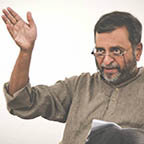 MK Raghavendra is a film/literary scholar, theorist, critic and writer who had, till 2016, authored six volumes on cinema, and contributed to numerous newspapers and periodicals in India and outside. He received the Swarna Kamal, the National Award for Best Film Critic in 1997. He is the co-founder of the film journal ‘Deep Focus’; the founder-editor of ‘Phalanx’, an online journal dedicated to debate; and a member of both the Film Critics Circle of India as well as the Indian body of FIPRESCI (earlier, in the capacity of the General Secretary). He has been a member of the jury for various international film festivals as well as for the Indian Panorama (twice) by the government of India.
MK Raghavendra is a film/literary scholar, theorist, critic and writer who had, till 2016, authored six volumes on cinema, and contributed to numerous newspapers and periodicals in India and outside. He received the Swarna Kamal, the National Award for Best Film Critic in 1997. He is the co-founder of the film journal ‘Deep Focus’; the founder-editor of ‘Phalanx’, an online journal dedicated to debate; and a member of both the Film Critics Circle of India as well as the Indian body of FIPRESCI (earlier, in the capacity of the General Secretary). He has been a member of the jury for various international film festivals as well as for the Indian Panorama (twice) by the government of India.
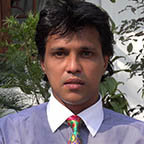 Christopher Dalton is quintessentially a film critic /essayist /festival advisor. Additionally, editor of Cinematic Illusions as well as the Journal of Indian Cinema; founder of the Cinema Society of India, which screens films; CEO of House of Illusions, a film studio that creates meaningful cinema; chief advisory board member of the Kautik International Film Festival; and artistic director of the Chalachitram National Film Festival. He has served on the music jury of Mahatma Gandhi University and on the film jury (west zone panel) of the 67th National Film Awards of India.
Christopher Dalton is quintessentially a film critic /essayist /festival advisor. Additionally, editor of Cinematic Illusions as well as the Journal of Indian Cinema; founder of the Cinema Society of India, which screens films; CEO of House of Illusions, a film studio that creates meaningful cinema; chief advisory board member of the Kautik International Film Festival; and artistic director of the Chalachitram National Film Festival. He has served on the music jury of Mahatma Gandhi University and on the film jury (west zone panel) of the 67th National Film Awards of India.
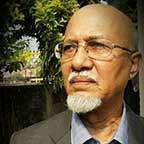 Apurba Sarma is a National Award-winning film critic (Swarna Kamal for Best Book on Cinema; 2002); Sahitya Akademi winning author (for Creative Literature in Assamese; 2002); and recipient of the Assam Valley Literary Award (for Creative Literature; 2015). He was the former editor of Ajir Asom, an Assamese daily published by The Sentinel Group. He is presently the founder-president of Xahitya Mancha Asom, a Guwahati-based society of writers and fans of Assamese literature, and a member of the Film Critics Circle of India. He served twice (2005 and 2007) on the jury of the National Film Award.
Apurba Sarma is a National Award-winning film critic (Swarna Kamal for Best Book on Cinema; 2002); Sahitya Akademi winning author (for Creative Literature in Assamese; 2002); and recipient of the Assam Valley Literary Award (for Creative Literature; 2015). He was the former editor of Ajir Asom, an Assamese daily published by The Sentinel Group. He is presently the founder-president of Xahitya Mancha Asom, a Guwahati-based society of writers and fans of Assamese literature, and a member of the Film Critics Circle of India. He served twice (2005 and 2007) on the jury of the National Film Award.
 Tim Bragg, an Englishman living in France (married to a French woman), is a writer-musician, and the founder of two prominent organisations—the (now-ceased) cultural publication, ‘Steadfast’, and the environmental campaign group, ‘English Green’. He is the author-editor of a number of books. And a singer-songwriter who plays a variety of musical instruments. He specialises in the jazz drums. He is also the recipient of an Akademia Award for Best Rock/R&B Song.
Tim Bragg, an Englishman living in France (married to a French woman), is a writer-musician, and the founder of two prominent organisations—the (now-ceased) cultural publication, ‘Steadfast’, and the environmental campaign group, ‘English Green’. He is the author-editor of a number of books. And a singer-songwriter who plays a variety of musical instruments. He specialises in the jazz drums. He is also the recipient of an Akademia Award for Best Rock/R&B Song.
 Rima Das is a double-National Award winning filmmaker, and one of the most celebrated indie filmmakers in India at the moment. Village Rockstars, written, directed, cinematographed, edited, and produced by her over a few years on a shoe-string budget was picked up by the Hong Kong-Asia Film Financing Forum (HAF) for a work-in-progress grant. From there, it travelled all the way to the post-production tables of Italy. And then took her to a platform at Cannes. It later created waves at Toronto as well as Tallinn Black Nights. The film picked up 4 National Film Awards, including two for her—Best Feature & Best Editing—& one for her Audio Recordist and one for her Child Artiste. Just a few weeks prior to that, it had won the Film Critics Circle of India Award for the Best Indian Film of 2017.
Rima Das is a double-National Award winning filmmaker, and one of the most celebrated indie filmmakers in India at the moment. Village Rockstars, written, directed, cinematographed, edited, and produced by her over a few years on a shoe-string budget was picked up by the Hong Kong-Asia Film Financing Forum (HAF) for a work-in-progress grant. From there, it travelled all the way to the post-production tables of Italy. And then took her to a platform at Cannes. It later created waves at Toronto as well as Tallinn Black Nights. The film picked up 4 National Film Awards, including two for her—Best Feature & Best Editing—& one for her Audio Recordist and one for her Child Artiste. Just a few weeks prior to that, it had won the Film Critics Circle of India Award for the Best Indian Film of 2017.
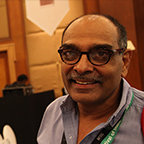 Rajesh Kumar Singh is a fiery film critic /journalist /trade-analyst. And the scriptwriter-director of the classic Indian TV series of yesteryears, Shanti. He writes primarily for Khullam Khulla and for Bollywood Trade. He is called upon to select/recommend jury members for important awards such as the National Film Award, but refuses to himself be seated on film juries/committees. He’s a regular film journalist on the premier film festival circuit (in particular—IFFI and MAMI, in India; and Cannes and Berlin, internationally). He’s a powerful, feared, and respected voice in the audience at important conferences such as FICCI-FRAMES, but refuses invitations to be on panels. He rejects memberships to prominent film critics societies. And he declines awards of all sorts.
Rajesh Kumar Singh is a fiery film critic /journalist /trade-analyst. And the scriptwriter-director of the classic Indian TV series of yesteryears, Shanti. He writes primarily for Khullam Khulla and for Bollywood Trade. He is called upon to select/recommend jury members for important awards such as the National Film Award, but refuses to himself be seated on film juries/committees. He’s a regular film journalist on the premier film festival circuit (in particular—IFFI and MAMI, in India; and Cannes and Berlin, internationally). He’s a powerful, feared, and respected voice in the audience at important conferences such as FICCI-FRAMES, but refuses invitations to be on panels. He rejects memberships to prominent film critics societies. And he declines awards of all sorts.
 Swati Soni is a Mumbai-based fashion consultant, and a journalist with over 14 years of experience of writing on art, culture, politics, education, and fashion for the Times of India. Prior to that, she coordinated with celebrities for stories in a variety of magazines, and worked briefly in an advertising agency. She has also written short stories, and directed two documentaries, which are presently in the Digital Film Academy archives. She’s presently also into mixing-matching of garments, and has major plans, in the very near future, of emerging as a wardrobe designer and setting up her own fashion label.
Swati Soni is a Mumbai-based fashion consultant, and a journalist with over 14 years of experience of writing on art, culture, politics, education, and fashion for the Times of India. Prior to that, she coordinated with celebrities for stories in a variety of magazines, and worked briefly in an advertising agency. She has also written short stories, and directed two documentaries, which are presently in the Digital Film Academy archives. She’s presently also into mixing-matching of garments, and has major plans, in the very near future, of emerging as a wardrobe designer and setting up her own fashion label.
 Piyush Chauhan is an apple farmer from Simla with an immense interest in films of all sorts, especially, Hindi. He has reviewed Hollywood films in the past for a semi-trade film magazine. And is a certified mountaineer. In his spare time, which isn’t much these days, he imagines climbing the impossible mountains. He dreams of, someday, touching the peak of Everest on his own as well as of introducing himself to popular Indian cinema as an actor-producer.
Piyush Chauhan is an apple farmer from Simla with an immense interest in films of all sorts, especially, Hindi. He has reviewed Hollywood films in the past for a semi-trade film magazine. And is a certified mountaineer. In his spare time, which isn’t much these days, he imagines climbing the impossible mountains. He dreams of, someday, touching the peak of Everest on his own as well as of introducing himself to popular Indian cinema as an actor-producer.
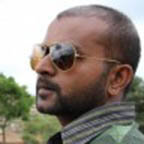 Sony Gomes is a dance choreographer from the Malayalam film industry, with over two and a half decades of experience as a stage performer and as a dance master. Some of his students have gone on to become models and actors, and have garnered awards. His signature style is a mix of a variety of genres—from classical dance forms such as bhartanatyam, mohiniyattam, kathak, and kathakali to dance-room, folk and street forms such as disco, hip-hop, and the dappan koothu. Additionally, he has composed the music for, and directed, a music video; and has successfully attempted the film-reviewing stunt.
Sony Gomes is a dance choreographer from the Malayalam film industry, with over two and a half decades of experience as a stage performer and as a dance master. Some of his students have gone on to become models and actors, and have garnered awards. His signature style is a mix of a variety of genres—from classical dance forms such as bhartanatyam, mohiniyattam, kathak, and kathakali to dance-room, folk and street forms such as disco, hip-hop, and the dappan koothu. Additionally, he has composed the music for, and directed, a music video; and has successfully attempted the film-reviewing stunt.
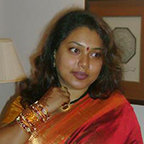 Rwita Dutta is a Kolkata-based film journalist doing her PhD on Bengali cinema and the city of her birth. She writes extensively on cinema in various Indian and foreign publications, and is the editor-publisher of the journal ‘Film Buff’, which used to be distributed at reputed international festivals. Additionally, she has delivered film lectures, and has served on the juries of Cannes, Pusan, Cairo, Ukraine, and IFFK, among many others, as a representative member of the Indian body of FIPRESCI.
Rwita Dutta is a Kolkata-based film journalist doing her PhD on Bengali cinema and the city of her birth. She writes extensively on cinema in various Indian and foreign publications, and is the editor-publisher of the journal ‘Film Buff’, which used to be distributed at reputed international festivals. Additionally, she has delivered film lectures, and has served on the juries of Cannes, Pusan, Cairo, Ukraine, and IFFK, among many others, as a representative member of the Indian body of FIPRESCI.
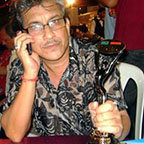 Utpal Datta is a National-Award-winning Assamese film critic, published author-editor-translator and Assam State-Award-winning filmmaker. He has also been honored with the ‘RAPA for Radio Production’, the ‘Moonlight Media Award for Cultural Journalism’, the ‘Jyotirupa Media Award for Film Criticism’ and the ‘Laadli Media Award for Radio Production’. Additionally, he has served as a jury member for the ‘ERA Excellence in Radio Award’ and the ‘Assam State Film Award’. Utpal is presently the assistant director of AIR-Guwahati; a member of the Film Critics Circle of India; and the president of Chalachitram, a society that promotes Indian cinema.
Utpal Datta is a National-Award-winning Assamese film critic, published author-editor-translator and Assam State-Award-winning filmmaker. He has also been honored with the ‘RAPA for Radio Production’, the ‘Moonlight Media Award for Cultural Journalism’, the ‘Jyotirupa Media Award for Film Criticism’ and the ‘Laadli Media Award for Radio Production’. Additionally, he has served as a jury member for the ‘ERA Excellence in Radio Award’ and the ‘Assam State Film Award’. Utpal is presently the assistant director of AIR-Guwahati; a member of the Film Critics Circle of India; and the president of Chalachitram, a society that promotes Indian cinema.
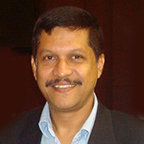 Manoj Barpujari is a National-Award-winning film critic, and member of the Film Critics Circle of India. He writes for Frontline, The Assam Tribune, The Eastern Chronicle, and various Assamese publications. And has served on the jury of the All Lights India International Film Festival (ALIIFF), the International Film Festival of Kerala (IFFK), the Kolkatta International Film Festival (KIFF); the film festivals of Almaty, Busan, Prag, Dhaka, Siliguri, and Guwahati; the Assam State Film Awards; and the National Film Awards.
Manoj Barpujari is a National-Award-winning film critic, and member of the Film Critics Circle of India. He writes for Frontline, The Assam Tribune, The Eastern Chronicle, and various Assamese publications. And has served on the jury of the All Lights India International Film Festival (ALIIFF), the International Film Festival of Kerala (IFFK), the Kolkatta International Film Festival (KIFF); the film festivals of Almaty, Busan, Prag, Dhaka, Siliguri, and Guwahati; the Assam State Film Awards; and the National Film Awards.
 Atanu Ghosh is a National Award winning filmmaker. Two of his films (Rupkatha Noy and Mayuraskhi) received 4 Filmfare Awards each. Other prominent awards include the Doordarshan Award, the Chitra Bharathi, the RAPA, the Aravindan Puraskaram, the Asia-Pacific Festival Award, the Lankesh Chitra Prashasti, and the Shyamal Sen Smriti Samman, He has also been felicitated by the Federation of Film Societies of India (FFSI) and the West Bengal Film Journalists Association (WBFJA). A post-graduate in journalism, he has made 13 documentaries, 34 telefilms, and 9 theatrically-released feature films. His body of films—known for perceptual precision and economy of expression—reflect an urge for exploring the unique complexities of human behavior pitted against the backdrop of a society caught up in rapid change.They have been well received at a variety of reputed international festivals such IFFI, Karlovy Vary, London, Shanghai, Osaka, and Busan.
Atanu Ghosh is a National Award winning filmmaker. Two of his films (Rupkatha Noy and Mayuraskhi) received 4 Filmfare Awards each. Other prominent awards include the Doordarshan Award, the Chitra Bharathi, the RAPA, the Aravindan Puraskaram, the Asia-Pacific Festival Award, the Lankesh Chitra Prashasti, and the Shyamal Sen Smriti Samman, He has also been felicitated by the Federation of Film Societies of India (FFSI) and the West Bengal Film Journalists Association (WBFJA). A post-graduate in journalism, he has made 13 documentaries, 34 telefilms, and 9 theatrically-released feature films. His body of films—known for perceptual precision and economy of expression—reflect an urge for exploring the unique complexities of human behavior pitted against the backdrop of a society caught up in rapid change.They have been well received at a variety of reputed international festivals such IFFI, Karlovy Vary, London, Shanghai, Osaka, and Busan.
 Syed Mahmoud Nawaz is a senior journalist and filmmaker based in Delhi. He has done a variety of media assignments in countries such as the UK, Sweden, Denmark, Belgium, Luxembourg, Germany, France, Egypt, Jordan, Iran, Iraq, Syria, UAE, Maldives, Thailand, Pakistan, Bangladesh, Russia, and the US. He has served as a Consultant for the UN Population Fund (UNFPA) in Maldives as well as for the Ministry of Information, Arts & Culture of the Republic of Maldives. He was also invited by the US Dept. of State under the International Visitors Leadership Program (IVLP) for a study project, ‘US Foreign Policy for Journalists’.
Syed Mahmoud Nawaz is a senior journalist and filmmaker based in Delhi. He has done a variety of media assignments in countries such as the UK, Sweden, Denmark, Belgium, Luxembourg, Germany, France, Egypt, Jordan, Iran, Iraq, Syria, UAE, Maldives, Thailand, Pakistan, Bangladesh, Russia, and the US. He has served as a Consultant for the UN Population Fund (UNFPA) in Maldives as well as for the Ministry of Information, Arts & Culture of the Republic of Maldives. He was also invited by the US Dept. of State under the International Visitors Leadership Program (IVLP) for a study project, ‘US Foreign Policy for Journalists’.
 Lopamudra Jena Kaul, a St. Xavier’s English Major student oriented for good cinema since age 4, is the daughter of filmmaker/actress Bijaya Jena and cinematographer Neelaabh Kaul. Her articles have appeared in leading newspapers such as Dainik Janambhumi (Assam) and Kerala Kaumudi (Kerala). She has attended various international film festivals over the years. She assisted a juror at the Golden Apricot International Film Festival (GAIFF–2015) and a film critic at the International Film Festival of India (IFFI–2016). And has been to the Cannes festival thrice—2012, 2016, & 2017—last year, as a press delegate, representing the film trade magazine ‘Complete Cinema’.
Lopamudra Jena Kaul, a St. Xavier’s English Major student oriented for good cinema since age 4, is the daughter of filmmaker/actress Bijaya Jena and cinematographer Neelaabh Kaul. Her articles have appeared in leading newspapers such as Dainik Janambhumi (Assam) and Kerala Kaumudi (Kerala). She has attended various international film festivals over the years. She assisted a juror at the Golden Apricot International Film Festival (GAIFF–2015) and a film critic at the International Film Festival of India (IFFI–2016). And has been to the Cannes festival thrice—2012, 2016, & 2017—last year, as a press delegate, representing the film trade magazine ‘Complete Cinema’.
 Bikas Mishra is an award-winning Indian screenwriter and film director. His debut feature film “Chauranga” won the National Film Development Corporation (NFDC) Incredible India Award in addition to awards at the Mumbai Film Festival (MAMI) and the Indian Film Festival of Los Angeles (IFFLA). His short film “Dance of Ganesha” had its world premiere at the 16th Busan International Film Festival, and its European premiere at the 41st International Film Festival Rotterdam. The film was also shown at Clermont Ferrand Short Film Festival in France. He is a recipient of the prestigious Hubert Bals Fund for script development.He has directed a film adaptation of renowned Bengali playwright Badal Sarkar’s Pagla Ghoda for CinePlay; it’s now streamng on HotStar. Bikas is also a film reviewer and the publisher of the (now-ceased) online film publication, Dear Cinema. He’s a member of the Film Critics Circle of India. And in 2012, he was invited on the Visionary Jury of Critics Week of the Cannes Film Festival.
Bikas Mishra is an award-winning Indian screenwriter and film director. His debut feature film “Chauranga” won the National Film Development Corporation (NFDC) Incredible India Award in addition to awards at the Mumbai Film Festival (MAMI) and the Indian Film Festival of Los Angeles (IFFLA). His short film “Dance of Ganesha” had its world premiere at the 16th Busan International Film Festival, and its European premiere at the 41st International Film Festival Rotterdam. The film was also shown at Clermont Ferrand Short Film Festival in France. He is a recipient of the prestigious Hubert Bals Fund for script development.He has directed a film adaptation of renowned Bengali playwright Badal Sarkar’s Pagla Ghoda for CinePlay; it’s now streamng on HotStar. Bikas is also a film reviewer and the publisher of the (now-ceased) online film publication, Dear Cinema. He’s a member of the Film Critics Circle of India. And in 2012, he was invited on the Visionary Jury of Critics Week of the Cannes Film Festival.
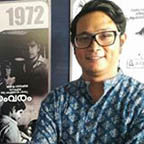 Parthajit Baruah is an award winning film critic and docu filmmaker who has done his M. Phil on the subject ‘Film Adaptation: Shakespeare in Celluloid’. He is the recipient of the Prag Channel – Film Critic Award for his book Chalachitror Taranga (2010). His book, ‘Face-to-Face: The Cinema of Adoor Goplakrishnan’ (2016), published by Harper Collins, is now being translated into French. Additionally, he has contributed to Routledge Publications, lectured at universities, and presented papers at international conferences. Presently, he’s a researcher at the National Film Archive of India (NFAI), working on the narratives of Assamese Cinema.
Parthajit Baruah is an award winning film critic and docu filmmaker who has done his M. Phil on the subject ‘Film Adaptation: Shakespeare in Celluloid’. He is the recipient of the Prag Channel – Film Critic Award for his book Chalachitror Taranga (2010). His book, ‘Face-to-Face: The Cinema of Adoor Goplakrishnan’ (2016), published by Harper Collins, is now being translated into French. Additionally, he has contributed to Routledge Publications, lectured at universities, and presented papers at international conferences. Presently, he’s a researcher at the National Film Archive of India (NFAI), working on the narratives of Assamese Cinema.
 Tanul Thakur is a National Award wining film critic. He is also the recipient of the Mumbai Press Club Award for Best Lifestyle and Entertainment Story, and a member of the Film Critics Circle of India. His film reviews /writings on cinema have appeared in a variety of publications ranging from the The Sunday Guardian and The Big Indian Picture to First Post, OZY, The Wire, Fountain Ink, Yahoo! India, Man’s World, and GQ. He was also one of the editors of (the now-ceased) online film publication, Passion For Cinema, “responsible for scrutinizing and selecting write-ups by cinema enthusiasts all over the world to be published on the site, and offering tips to budding authors on improving their writing style”. Tanul is a successful electrical engineer who took permanent retirement from a company in Colorado, USA, to return to India and become a film critic.
Tanul Thakur is a National Award wining film critic. He is also the recipient of the Mumbai Press Club Award for Best Lifestyle and Entertainment Story, and a member of the Film Critics Circle of India. His film reviews /writings on cinema have appeared in a variety of publications ranging from the The Sunday Guardian and The Big Indian Picture to First Post, OZY, The Wire, Fountain Ink, Yahoo! India, Man’s World, and GQ. He was also one of the editors of (the now-ceased) online film publication, Passion For Cinema, “responsible for scrutinizing and selecting write-ups by cinema enthusiasts all over the world to be published on the site, and offering tips to budding authors on improving their writing style”. Tanul is a successful electrical engineer who took permanent retirement from a company in Colorado, USA, to return to India and become a film critic.
 Anil Zankar is a recipient of two national awards, one for a film script and the other for a book on cinema. He has 35 years of experience in film making, teaching and writing. He is an alumnus of FTII-Pune, and has made 21 short films on social issues and institutions, bio-pics and corporate themes. He is a historian of cinema. He’s a member of the Film Critics Circle of India. He has attended seminars on international cinema; been invited as a visiting scholar by Indian Institute of Advanced Studies (Shimla, 2014); been a speaker at the the Goa Arts and Literature Festival, the Taj Literature Festival (Agra), and the Pune International Literary Festival; and presented papers at international conferences (Poland, 2006; Japan, 2014). He was editor of a magazine, ‘Lights Camera Action’ published in collaboration with BFI, UK. His most recent publication is Mughal-e-Azam (Harper Collins). And he has contributed to various academic journals, the Routledge Handbook Of Indian Cinema, and the Encyclopaedia of Hindi Cinema (Britannica).
Anil Zankar is a recipient of two national awards, one for a film script and the other for a book on cinema. He has 35 years of experience in film making, teaching and writing. He is an alumnus of FTII-Pune, and has made 21 short films on social issues and institutions, bio-pics and corporate themes. He is a historian of cinema. He’s a member of the Film Critics Circle of India. He has attended seminars on international cinema; been invited as a visiting scholar by Indian Institute of Advanced Studies (Shimla, 2014); been a speaker at the the Goa Arts and Literature Festival, the Taj Literature Festival (Agra), and the Pune International Literary Festival; and presented papers at international conferences (Poland, 2006; Japan, 2014). He was editor of a magazine, ‘Lights Camera Action’ published in collaboration with BFI, UK. His most recent publication is Mughal-e-Azam (Harper Collins). And he has contributed to various academic journals, the Routledge Handbook Of Indian Cinema, and the Encyclopaedia of Hindi Cinema (Britannica).
 Simone Mariani is an award-winning Italian actor-writer-director-producer of short and docu films. He has also served as a member of international film juries, and has been invited to India on many occasions. Awards received: Best Italian Docu at Roma CineDoc for ‘A Journey on the Tabla’, and Critics Prize at Akab Film Festival 2006 for ‘Iram, The city by the High Columns’. He recently worked as an actor in the Hollywood film “Inferno” (the film has a score of 42 on the film reviewing site, ‘Metacritic’) directed by Ron Howard and starring Tom Hanks. He is also an exponent of Sunmudo, an ancient martial art practiced by Korean Seon (Zen) monks.
Simone Mariani is an award-winning Italian actor-writer-director-producer of short and docu films. He has also served as a member of international film juries, and has been invited to India on many occasions. Awards received: Best Italian Docu at Roma CineDoc for ‘A Journey on the Tabla’, and Critics Prize at Akab Film Festival 2006 for ‘Iram, The city by the High Columns’. He recently worked as an actor in the Hollywood film “Inferno” (the film has a score of 42 on the film reviewing site, ‘Metacritic’) directed by Ron Howard and starring Tom Hanks. He is also an exponent of Sunmudo, an ancient martial art practiced by Korean Seon (Zen) monks.
EDITORIAL BOARD
 Madhu Eravankara is a senior filmmaker, film scholar, and film critic; and the head of the Department of Film Studies at Malayalam University. He is a recipient of the President’s Gold Medal, the National Film Award, two State Film Awards, the Film Critics Award, the State Television Award, the International Documentary Film Award (AFFMA), the Greens Award for Environmental films, the Kozhikodan Award for the Best Book on Cinema, and many others. He has served as a member of jury of a variety of prestigious intentional film festivals. And is a member of the Film Critics Circle of India, and the Malayalam Cine Technicians Association (MACTA); the founder president of the Documentary & Short Film Producers Association of Kerala (DOSPAK); and the general secretary of the International Film Critics Federation (FIPRESCI).
Madhu Eravankara is a senior filmmaker, film scholar, and film critic; and the head of the Department of Film Studies at Malayalam University. He is a recipient of the President’s Gold Medal, the National Film Award, two State Film Awards, the Film Critics Award, the State Television Award, the International Documentary Film Award (AFFMA), the Greens Award for Environmental films, the Kozhikodan Award for the Best Book on Cinema, and many others. He has served as a member of jury of a variety of prestigious intentional film festivals. And is a member of the Film Critics Circle of India, and the Malayalam Cine Technicians Association (MACTA); the founder president of the Documentary & Short Film Producers Association of Kerala (DOSPAK); and the general secretary of the International Film Critics Federation (FIPRESCI).
 Rashmi Doraiswamy is a National Film Award winning film critic. She received her M. Phil from the Centre for Russian Studies, Jawaharlal Nehru University (Delhi, India) for her dissertation, ‘A Critique of Mikhail Bakhtin’s Theory of Literature in the Context of Contemporary Theories of Literature and the Formalist School of the 20s’. She is currently Professor (Central Asia) at the Academy of International Studies, Jamia Millia Islamia. She has authored, edited, and translated several book on cinema; has been on various film selection committees; has served on the jury of various international film festivals; and is a member of the Film Critics Circle of India as well as the Indian body of FIPRESCI. She was awarded a Certificate of Appreciation by the Tadjik Filmmakers’ Union for the active promotion of Tadjik cinema in 1991. Her entry on ‘Film and Literature (India)’ has appeared in the Encyclopedia of Postcolonial Literatures in English (Routledge, 2005).
Rashmi Doraiswamy is a National Film Award winning film critic. She received her M. Phil from the Centre for Russian Studies, Jawaharlal Nehru University (Delhi, India) for her dissertation, ‘A Critique of Mikhail Bakhtin’s Theory of Literature in the Context of Contemporary Theories of Literature and the Formalist School of the 20s’. She is currently Professor (Central Asia) at the Academy of International Studies, Jamia Millia Islamia. She has authored, edited, and translated several book on cinema; has been on various film selection committees; has served on the jury of various international film festivals; and is a member of the Film Critics Circle of India as well as the Indian body of FIPRESCI. She was awarded a Certificate of Appreciation by the Tadjik Filmmakers’ Union for the active promotion of Tadjik cinema in 1991. Her entry on ‘Film and Literature (India)’ has appeared in the Encyclopedia of Postcolonial Literatures in English (Routledge, 2005).
 Daniela Rogobete is senior lecturer in English Literature at the Department of British, American and German Studies, University of Craiova, Romania. She holds a PhD in Postcolonial Studies and this continues to be her major field of study, with a particular focus on Contemporary Indian Literature written in English. Her most important publications include When Texts Come into Play–Intertexts and Intertextuality (2003), Metaphor—Between Language and Thought (2008), Deconstructing Silence—Ambiguity and Censored Metaphors in Salman Rushdie’s Fiction (2010), edited and co-edited collections of essays Centres and (Ex-) Eccentricities – Language, Literature and Cultural Policies (2011), The Silent Life of Things: Reading and Representing Commodified Objecthood (2015), articles published in national and international journals, and literary translations into Romanian. Her research interests also include intertextuality, aesthetics and visual culture.
Daniela Rogobete is senior lecturer in English Literature at the Department of British, American and German Studies, University of Craiova, Romania. She holds a PhD in Postcolonial Studies and this continues to be her major field of study, with a particular focus on Contemporary Indian Literature written in English. Her most important publications include When Texts Come into Play–Intertexts and Intertextuality (2003), Metaphor—Between Language and Thought (2008), Deconstructing Silence—Ambiguity and Censored Metaphors in Salman Rushdie’s Fiction (2010), edited and co-edited collections of essays Centres and (Ex-) Eccentricities – Language, Literature and Cultural Policies (2011), The Silent Life of Things: Reading and Representing Commodified Objecthood (2015), articles published in national and international journals, and literary translations into Romanian. Her research interests also include intertextuality, aesthetics and visual culture.



